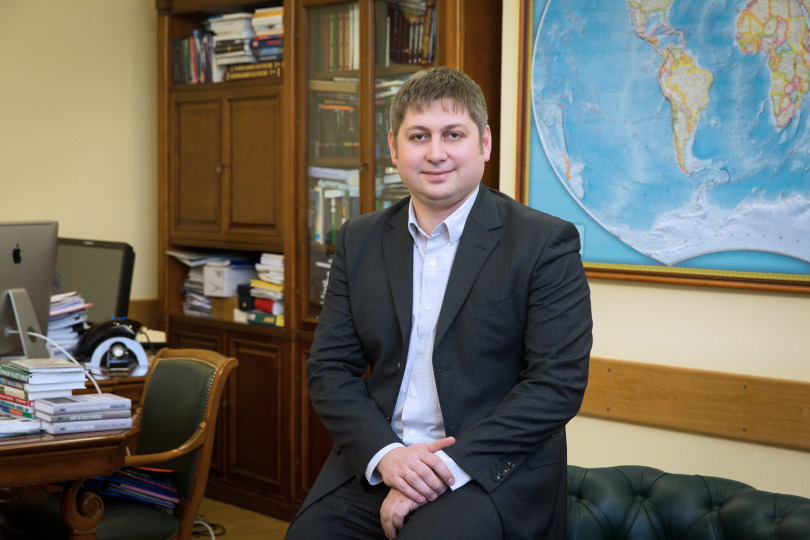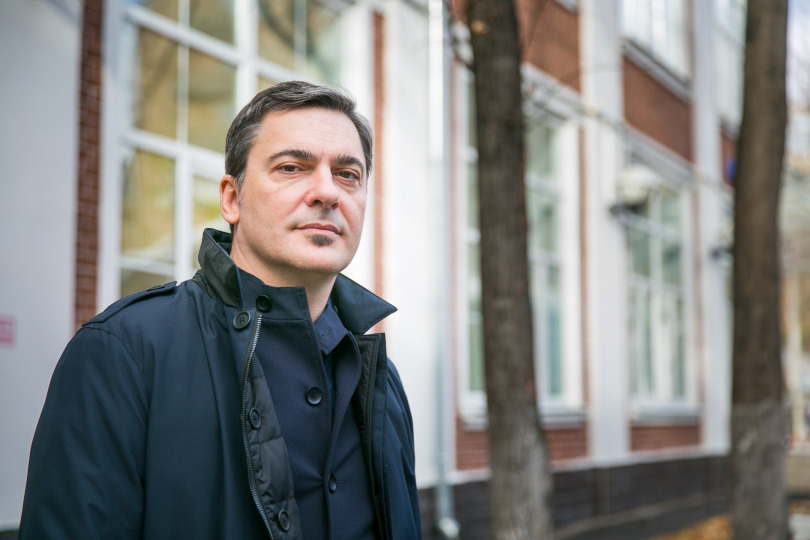
'To Work at the Economic Development Ministry, You Need Professional Training and a Very Mobile Mindset'
HSE alumnus Oleg Fomichev, who is currently Deputy Economic Development Minister of Russia, has tried to make the ministry’s work more understandable to the average Russian, and he allows those who work under him to be creative in their work with such a conservative discipline as economics. In an exclusive interview with Success Builder, Fomichev discusses what it is like working as a state official, as well as why a recent college graduate might be interested in such a field.
Drawing Lessons for Russia from the Global Financial Crisis
An expert in the economics of transition, corporate finance, organizational economics as well as law and economics, Dr. Ichiro Iwasaki, Professor of Economics at the Institute of Economic Research (Hitotsubashi University, Japan), will present a lecture entitled ‘What we learnt from the Russian experience during the global financial crisis: A corporate governance perspective’ at the upcoming XVII April International Academic Conference on Economic and Social Development. He recently agreed to speak with the HSE news service about his research, his long interest in Russian economics, and his view on how to achieve successful international academic collaboration.
Honorary Lecture by Professor Lawrence Kotlikoff at HSE ICEF
On January 15, Professor Larry Kotlikoff gave a talk on measuring inequality in lifetime spending power within different age cohorts in the USA, net tax rates facing Americans, and current wealth indicators.
Informal Revenues Increase Credit Worthiness of Mortgage Borrowers
Mortgage borrowers who have unconfirmed income turn out to be unable to repay the loan less often than public officials, whose income consists of their official salary only. The probability of loan default is also considerably influenced by the cost of the loan. These were the findings of a study conducted by Alexander Karminsky, HSE Professor, and Agata Lozinskaya, Junior Research Fellow at the HSE campus in Perm.
Thomas Piketty Delivers a Lecture at HSE
On November 26, Thomas Piketty, a famous French economist, delivered a lecture at HSE and presented the Russian edition of his best-selling book Capital in the Twenty-First Century. The event was organized by HSE Laboratory for Studies in Economic Sociology and Moscow Centre for Franco-Russian Research (Centre d’études franco-russe de Moscou - CEFR) with the support of French Embassy in Russia and French Institute (Institut Français).
Employers Not Interested in Migrant Workers' Experience and Education
In Russia, the demand for migrant workers is highest in economically developed and resource-extracting regions, in areas with low population density, and in construction and industrial companies. Employers prefer to hire low-skilled migrants with no education beyond secondary school and limited work experience of less than a year, since these workers are much cheaper than locals. These are some of the findings from a study by Elena Vakulenko, Assiant Professor at the Department of Applied Economics, HSE Faculty of Economic Sciences, and HSE student Roman Leukhin.

'What Makes ICEF Special is the High International Standards of the Education it Provides'
On November 6 and 7 ICEF and the International Laboratory of Financial Economics (LFE) held the Fourth International Moscow Finance Conference. Christian Julliard, Academic Director of LFE, has talked to HSE News Service about the conference and about the education of future economists at the International College of Economics and Finance.
Predictions for the 2015 Nobel Prize
At the beginning of ‘Nobel Week,’ HSE Professor Konstantin Sonin gave his traditional prediction on his blog, forecasting who might win this year’s Nobel Prize in Economics. The winner will be determined on October 12.
‘I Have Really Happy Memories of Studying at ICEF’
Mikhail Savkin an ICEF alumnus is Global Strategy & Development Director at Schneider Electric in France. He talked to the HSE website about his education and his career.
Russian Economy May Face Mobilisation
The current crisis in Russia is different from all others in its heightened uncertainty and unpredictable consequences, and recent events are comparable to the transformative crisis that occurred in Russia in the 1990s, the Director of the Centre of Development Institute, Natalia Akindinova, and HSE Academic Supervisor Evgeny Yasin said in their paper ‘A New Stage of Economic Development in Post-Soviet Russia.’ The researchers propose four possible scenarios for how the Russian economy might change, the most probable of which, they posit, is a so-called ‘mobilisation scenario.’


Applications are submitted until August 17, 2025